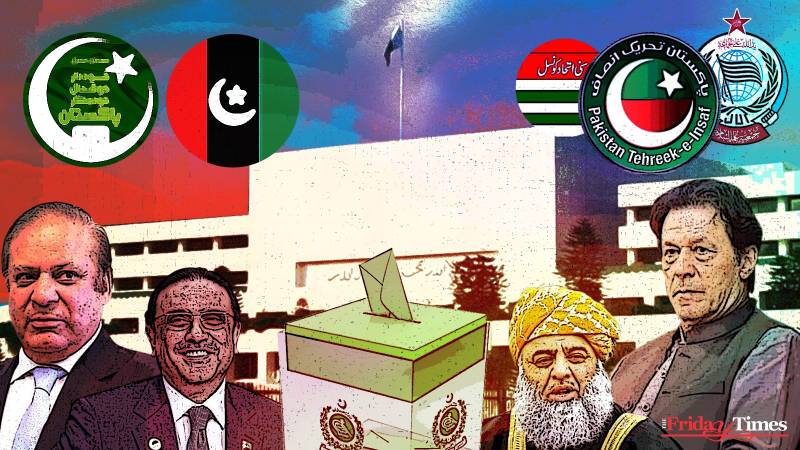
Democracy has often been derailed in Pakistan. The reasons are many, including direct and indirect interventions by the army. But let me focus on the legitimate political actors and hold other factors constant for greater clarity.
Consider democracy a game of chess with laid down and accepted rules. If that is accepted, and keeping other factors constant, we have grossly misunderstood its rules.
Let’s now play ‘Democracy’. What basic rules are needed?
You must first unanimously recognise that it is the only game you will play. In other words, nobody will defect and set up another board in another room or opt out when they are losing or when they are on a winning streak or throw away the game entirely. This is the minimum standard. Once this is done, you have completed the first step in setting up the game.
Players need to view and accept each other as having the legitimate right to be part of the game. You can question the moves of the opponent, checking for any misbehaviour, cheating, and irregularities, but not their right to play the game. You cannot make personal attacks or cast doubt over the opposing player’s right to be present.
Next, you need to agree on a basic set of rules for playing it. Let’s call these ‘rules’ the Constitution for playing Democracy. Evidently, the game cannot proceed smoothly when there is uncertainty about whether players will adhere to the Constitution. A sincere commitment to following the rules is therefore essential.
The game rests on the ability of all players to strategise, increase their own power and capacity, and make their moves maximally useful for their objectives. But all this must happen within the bounds of the Constitution.
Now comes the trickier part. Players need to view and accept each other as having the legitimate right to be part of the game. You can question the moves of the opponent, checking for any misbehaviour, cheating, and irregularities, but not their right to play the game. You cannot make personal attacks or cast doubt over the opposing player’s right to be present. You can only judge their ability to play and hold them responsible for the way they are doing so.
Pakistan has failed to follow this and earlier steps. We often see our opposition as enemies, not fellow players who simply want to do things differently and have a legitimate right to disagree. Instead, we have evolved a political culture that has become lowbrow and ad hominem. This has created a dispiriting cycle.
While Pakistanis, on the whole, seem to accept democracy as the only legitimate and acceptable power-sharing arrangement and agree to adhere to the Constitution, we have not managed to play according to the rules.
When civilians do rule in Pakistan, they often descend into viewing the opposition as enemies, losing sight of winning the game and pushing it forward, focusing, myopically, on squeezing others out. I have kept other factors constant but let it be said here that this is one reason, though not the only one, which creates space for external actors to kick the chessboard.
Inculcating this ethos of critically yet respectfully assessing other players in the game is crucial for a thriving democracy to take root in Pakistan. Specifically put, we must agree to be loyal opposers. We must agree to oppose each other in good faith while staying loyal to Democracy and its rules.
Once we have managed these steps, the citizens can then get into a dialogue with their representatives on issues of governance and policy: are the rulers being honest; who do their policies benefit; are they meaningfully centering the common man in their politics; are their ideologies, policies, diagnoses of current issues and their solutions even coherent; are they delivering what they promised; did their promises even make practical sense?
These and many other questions are what we must be asking and must hear our leaders asking of themselves and each other. But this process first needs the steps in the game we have set up for ourselves. If it’s not Democracy, then we might be playing but it would be a different game.
Inculcating this ethos of critically yet respectfully assessing other players in the game is crucial for a thriving democracy to take root in Pakistan. Specifically put, we must agree to be loyal opposers. We must agree to oppose each other in good faith while staying loyal to Democracy and its rules.
We may freely oppose the current government that is in power but must not kick the chessboard of democracy. The fostering of hatred and personal enmity towards political opposition is a formula for a failing parliamentary democracy, which rests upon the principle of accommodating views from a variety of perspectives and representing them at various levels of government.
We must also work towards ensuring we have transparent voting to make sure that the board on which we play Democracy is not rigged or biased from the get-go.
Otherwise, there’s no game left to play.

